Apr 2, 2024 12:59 PM
Saxophonist, Sonic Explorer Casey Benjamin Dies at 45
Casey Benjamin, the alto saxophonist, vocalist, keyboardist and producer who stamped his distinctive sounds on the…
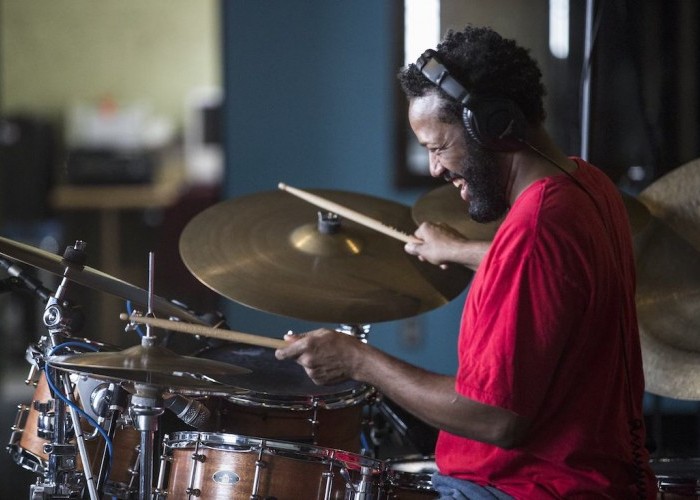
A sense of unrealized creativity led Dr. Mark Lomax II to devise the 12-album set 400: An Afrikan Epic.
(Photo: Jason Wood)Music born of the African Diaspora is ever-present in the mind of Dr. Mark Lomax II, an Ohio scholar, drummer and composer. But Lomax’s latest effort, 400: An Afrikan Epic (CFG Multimedia), holds significant meaning for him.
“This album is my 40th album, and it [was] released on my 40th birthday,” said Lomax, who earned a doctorate in composition from The Ohio State University and previously was an artist-in-residence at the institution’s Wexner Center for the Arts.
But three years ago, Lomax was “drinking from the proverbial fire hose” at his job in philanthropy. “I didn’t feel like I was being as creative as I would have liked,” he said, noting that music has been part of his life for as long as he can remember. Then, while working in his home studio, it dawned on Lomax that America was only a few years removed from marking a deeply significant part of its history.
“The number 400 generated in my spirit,” he said. “I realized that we were only three years from the 400-year commemoration of the transatlantic slave trade,” which brought the first enslaved Africans to American shores in 1619.
That pivotal piece of history provided a thematic backbone for the massive project, a 12-album collection of music emanating from African diasporic traditions. Each album contains various movements that represent aspects of the cultural legacy shared internationally by black people, and the drum provides the project with its pulse and purpose.
“Rhythm, in essence, is African,” Lomax said. “There is a belief across the continent, in various forms, that in the beginning, there was the drum. The drum gave birth to vibrations that created the world, the cosmos, people—all of that. For Africans, for black people, rhythm is intuitive.”
The project is broken into three parts, each containing four albums. The first portion of these is titled Alkebulan: The Beginning Of Us, and tells the story of pre-colonial Africa through percussive music, Lomax beating in rhythm with the Ngoma Lungundu Drum Ensemble.
“As blacks on the continent and in the diaspora, we’ve experienced incredible highs of civilization; we were pioneers in science, math, technology,” a period of innovation represented in the project’s first suite of albums. “But we’ve also experienced the absolute low of human bondage. I wanted to express ... the strength that we have gained from coming through that experience.”
Afro-Futurism: The Return To Uhuru is the final component of the project, which speaks of a spiritual homecoming, as Lomax envisions black people, individually and collectively, returning to ancient cultural belief systems, transforming themselves and, ultimately, the world.
In its totality, 400: An Afrikan Epic memorializes the experiences, brilliance and sacrifices of black people and the contributions they’ve made to the world, of which rhythm-centered music is singular, said Lomax.
It’s an ambitious and far-reaching project years in the making, the composer admitted. It required a great deal of personal introspection, historic study and creative energy. “The ancestors gave me a job,” the drummer said. “And it was up to me to see it through.” DB
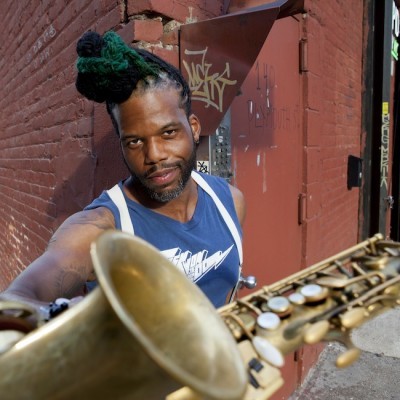
Benjamin possessed a fluid, round sound on the alto saxophone, and he was often most recognizable by the layers of electronic effects that he put onto the instrument.
Apr 2, 2024 12:59 PM
Casey Benjamin, the alto saxophonist, vocalist, keyboardist and producer who stamped his distinctive sounds on the…
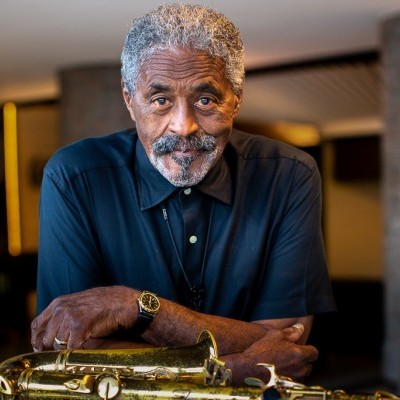
“He’s constructing intelligent musical sentences that connect seamlessly, which is the most important part of linear playing,” Charles McPherson said of alto saxophonist Sonny Red.
Feb 27, 2024 1:40 PM
“I might not have felt this way 30 to 40 years ago, but I’ve reached a point where I can hear value in what people…
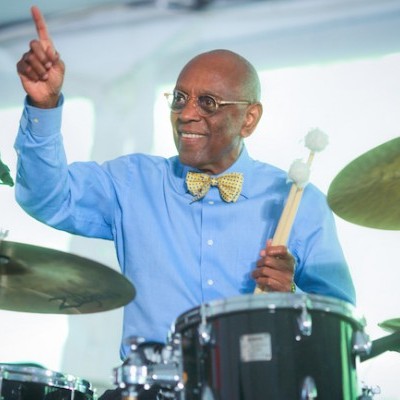
Albert “Tootie” Heath (1935–2024) followed in the tradition of drummer Kenny Clarke, his idol.
Apr 5, 2024 10:28 AM
Albert “Tootie” Heath, a drummer of impeccable taste and time who was the youngest of three jazz-legend brothers…
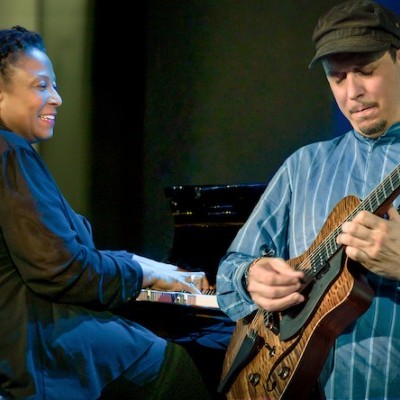
“Both of us are quite grounded in the craft, the tradition and the harmonic sense,” Rosenwinkel said of his experience playing with Allen. “Yet I felt we shared something mystical as well.”
Mar 12, 2024 11:42 AM
“There are a few musicians you hear where, as somebody once said, the molecules in the room change. Geri was one of…
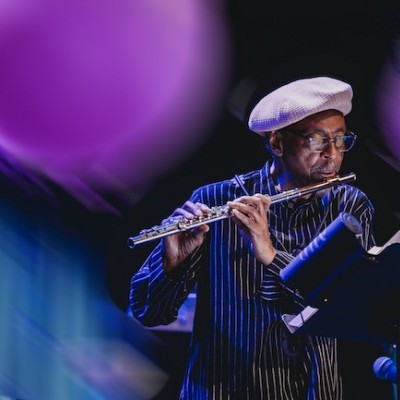
Henry Threadgill performs with Zooid at Big Ears in Knoxville, Tennessee.
Apr 9, 2024 11:30 AM
Big Ears, the annual four-day music celebration that first took place in 2009 in Knoxville, Tennessee, could well be…